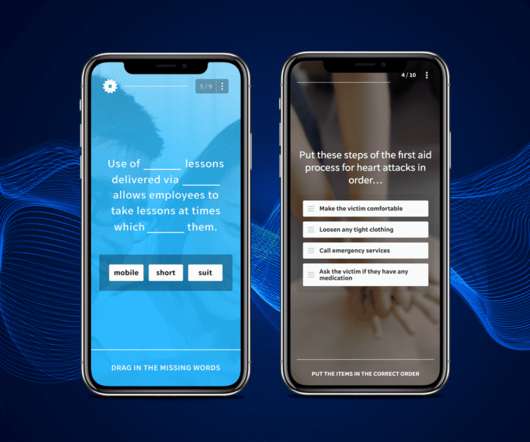A Brief History of Instructional Design
Origin Learning
MAY 26, 2015
Behavioral objectives got another boost when in 1956, Bloomberg Benjamin and his colleagues developed the “Taxonomy of EducationalObjectives”. He identified three principal domains of learning: Cognitive (what one knows or thinks), Psychomotor (what one does, physically) and Affective (what one feels, or what attitudes one has).
















Let's personalize your content